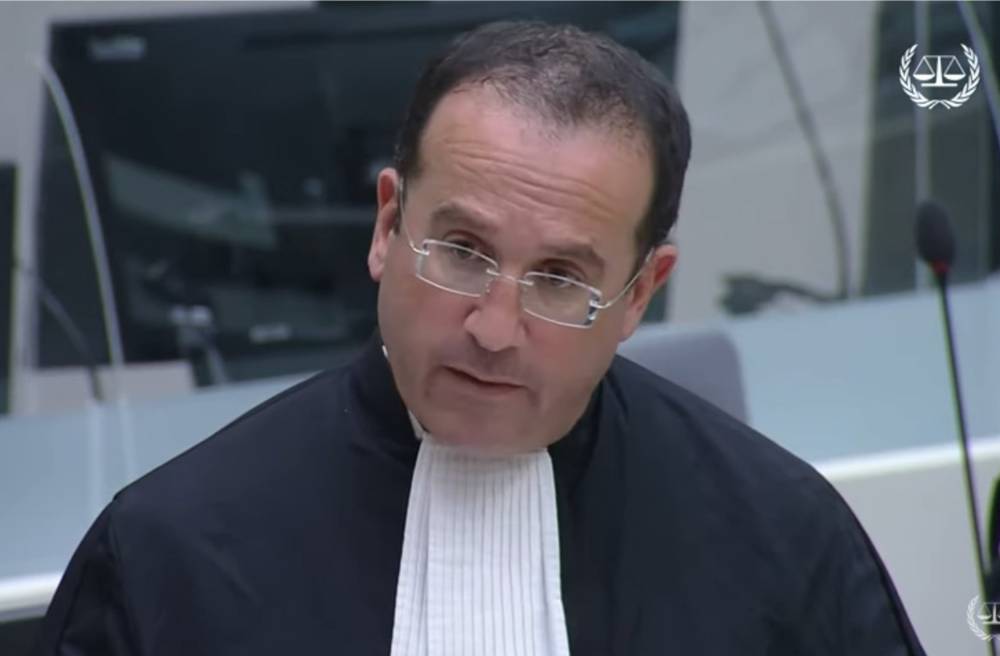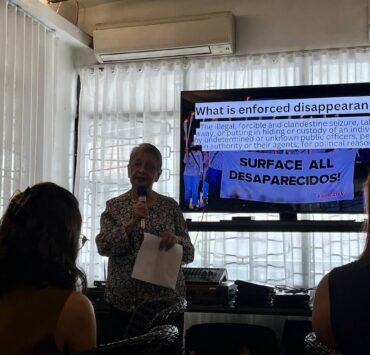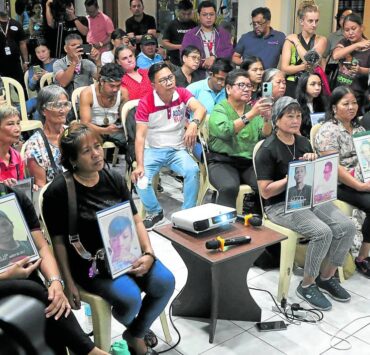Du30 lawyer drops DQ bid vs ICC prosecutor

The lead lawyer for Rodrigo Duterte has withdrawn his request to the International Criminal Court (ICC) to disqualify Prosecutor Karim Khan for alleged conflict of interest after getting clarifications on Khan’s past role in the case against the detained ex-president.
Duterte’s chief counsel, Nicolas Kaufman, had questioned Khan’s ability to fairly prosecute the case despite being part of the legal team for the drug war victims in the early stage of the investigation of the crimes against humanity charges against Duterte in connection with the thousands killed in his drug war.
In his Aug. 15 response to Khan’s explanation of his previous role to the ICC’s appeals chamber where Kaufman sought the prosecutor’s removal, Duterte’s lawyer said he was no longer seeking Khan’s disqualification from the case.
“There is no ostensible reason to doubt the prosecutor’s impartiality or his assertions that he is not conflicted on account of his former representation of [redacted],” Kaufman said.
“The defen[s]e, for its part, will not impede the smooth running of proceedings by seeking the prosecutor’s disqualification,” he added.
No reason to doubt
Khan told the appeals chamber that his prior involvement “was not in a capacity by virtue of which his impartiality might reasonably be doubted and was not such that he could be expected to have formed an opinion of the case in question that could adversely affect his impartiality.”
According to Khan, he had no direct involvement in the initial part of the investigation, including the interviews with drug war victims or witnesses under his predecessor, Fatou Bensouda.
His role, he maintained, was limited to “participating pro bono in reviewing and presenting the submission” to Bensouda and that he “withdrew from the matter and ceased any involvement shortly thereafter.”
In his request to the appeals court, Kaufman said Khan committed “grievous conflict of interest” when the latter did not disclose his role as a private counsel for the drug war victims and allegedly used the information he gathered from them when he took over the Office of the Prosecutor (OTP).
Bensouda opened a preliminary investigation of the “situation” in the Philippines in 2018 and turned over the work to Khan when he succeeded her in 2021.
Different roles
Khan said the OTP continued gathering evidence from various sources. The investigation and review of the evidence was led by a team of lawyers from the OTP supervised directly by a deputy prosecutor, not him.
The obligations of a prosecutor are “entirely different’ from those of a legal team” and that they play “entirely different roles,” he said.
Khan said that there should be no presumption that his past role would result in impartiality toward the evidence at hand, which he noted “significantly deepened” in scope over the last seven years.
Khan said that Rule 34 (1) of the ICC Rules of Procedure and Evidence, which Kaufman had said that he violated, could not be invoked to disqualify him because he could not be expected to have formed an opinion when there was yet no “case,” or when the process was still at the investigation stage.
Rule 34 sets the grounds for the disqualification of a judge, prosecutor or a deputy prosecutor, including their involvement, in a private capacity, in any legal proceedings in relation to a case in the ICC.

















